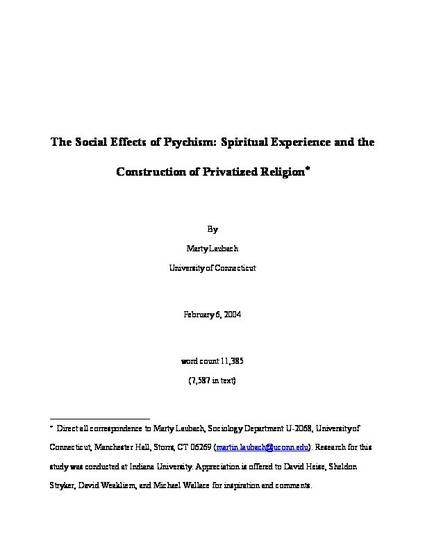
What is the relationship between spiritual experiences and privatized religion? This study defines spiritual experiences in terms of “psychism,” or psychic intrusions in the stream of consciousness that are not perceived by the actor as originating within the “self.” Intrusions interpreted as psychism are regarded by the actor as having the same facticity as empirical experience and are regarded as “proof” of an esoteric belief system. Psychism originated beliefs are therefore resistant to refutation or change, and support spiritual autonomy. Psychism theory is tested using 1988 GSS data on religious beliefs, where psychism is measured using GSS questions on “paranormal” experiences. Nonrecursive models demonstrate that psychism is a cause (not effect), has a negative effect on conformist beliefs and communal practices and a positive effect on moral autonomy and private religious practices, and that it has a nuanced effect on beliefs regarding God.

This is the author’s final peer-reviewed manuscript. The version of record is available from Oxford University Press at https://doi.org/10.2307/3712251. Copyright © 2004 Association for the Sociology of Religion. All rights reserved.